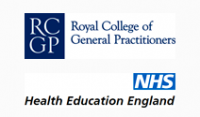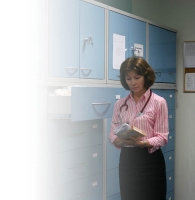Managing Common Vaginal Bleeding Problems course for GPs



This session will help GPs to offer first-line management for common complaints regarding vaginal bleeding, including heavy bleeding, painful bleeding, bleeding between periods, and absent or irregular bleeding.
This session was reviewed by Khyati Bakhai and last updated in October 2019.
Learning Objectives
By the end of this session you will be able to:
- Describe the purpose and potential findings of abdominal and pelvic examination
- Describe the indications for and potential value of any investigations that can be initiated in primary care
- List the options for first-line management of heavy menstrual bleeding and referral criteria
- List the options for first-line management of painful menstrual bleeding and referral criteria
- List the options for first-line management of intermenstrual bleeding and referral criteria
- List the options for first-line management of irregular or absent menstrual bleeding and referral criteria
This session takes a problem-orientated approach, rather than a pathology-based approach, to the most common presentations of bleeding issues. First-line primary care management should be logical, safe and effective in improving quality of life.
Sarah was a full time GP in Truro for over 10 years and has developed a career that remains firmly based in general practice but extends beyond it.
Sarah is the Primary Care Lead for Women’s Health in Cornwall and runs the NHS menopause referral service. She organises training at a local level for doctors and nurses in many aspects of women’s health. She is an advisor to Women’s Health Concern, Editorial Consultant for MIMS Women’s Health and Deanery Advisor for the Faculty of Sexual and Reproductive Healthcare. She was a member of the group who developed the NICE guidance on Heavy Menstrual Bleeding.
Sarah has chaired the education subcommittee of the British Menopause Society and developed and organised the highly evaluated theory courses for the BMS/FSRH menopause special skills module. Sarah is also an honorary clinical fellow of the Peninsula Medical School and peer reviewer for the General Medical Council.
In addition to this, Sarah is the Primary Care Lead for the Peninsula Cancer Network, a long serving council member of the Cornwall LMC, a content author for the e-LfH programme and a mother of teenagers!

- Communication Impairments Part 4: Autistic Spectru...
- Posted By eIntegrity Healthcare e-Learning
- Posted Date: 2025-01-22
- Location:Online
- This session is the last of four that looks at different speech, language and communication impairme...
- Communication Impairments Part 3: Cleft Palate, He...
- Posted By eIntegrity Healthcare e-Learning
- Posted Date: 2025-01-22
- Location:Online
- This session is the third of four which describe different speech, language and communication impair...
- Communication Impairments Part 2: Specific Speech ...
- Posted By eIntegrity Healthcare e-Learning
- Posted Date: 2025-01-22
- Location:Online
- This session is about speech sound disorder (SSD). It describes the characteristics associated with ...
- Communication Impairments Part 1: Late-talking Tod...
- Posted By eIntegrity Healthcare e-Learning
- Posted Date: 2025-01-22
- Location:Online
- This session is the first of four which describe different speech, language and communication impair...
- Typical Development Part 2: First Words and Early ...
- Posted By eIntegrity Healthcare e-Learning
- Posted Date: 2025-01-22
- Location:Online
- This session gives an overview of the main aspects of how language typically develops in children. I...







